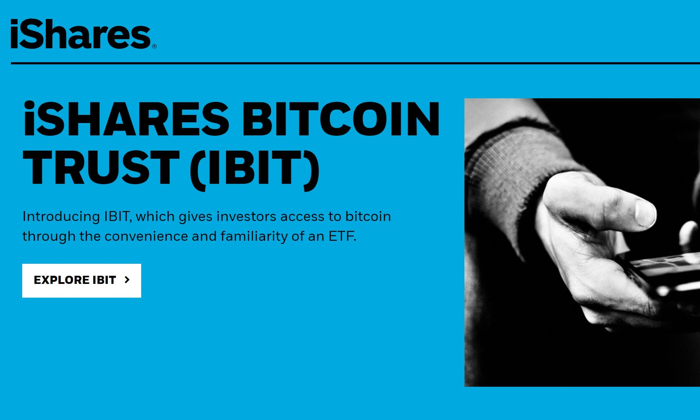The Tornado Cash trial, centering on the federal criminal charges against developer Roman Storm, is set to be a pivotal moment in the ongoing conversation about cryptocurrency regulation. With the US Department of Justice (DOJ) firmly moving forward amidst hints of a shift in their crypto policy, the legal outcomes could redefine the landscape for crypto mixing services. Storm faces serious allegations including money laundering related to Ethereum transactions, making this case crucial not only for him but for developers navigating the complex waters of digital asset regulation. Despite recent changes hinted at by internal DOJ memos, the trial underscores a significant tension between technology innovation and legislative oversight. As government entities clamp down on platforms assumed to facilitate illegal activities, the implications of the Tornado Cash sanctions loom large, making it imperative for stakeholders to stay informed about the evolving legal framework.
In this high-profile case involving Tornado Cash, developer Roman Storm faces serious allegations stemming from charges laid out by federal authorities. These developments reflect the broader implications of money laundering accusations within the Ethereum blockchain ecosystem and the government’s stance on decentralized software. The trial will explore critical issues pertaining to the accountability of crypto developers and their platforms amid a shifting DOJ crypto policy that has begun to re-examine its approach to enforcement. As we look at the unfolding events regarding sanctions and the efficacy of crypto mixing solutions, it becomes clear that the outcome of this trial may well influence future regulations and how developers operate within the crypto space. With scrutiny intensifying over the facilitation of illicit activities through digital platforms, this trial marks a critical juncture for the fate of the entire industry.
Criminal Charges Against Tornado Cash Developer Roman Storm
The impending trial of Roman Storm, a developer linked to Tornado Cash, is set to scrutinize significant allegations of money laundering and sanctions evasion. The U.S. Department of Justice (DOJ) is determined to move forward with these charges, despite internal discussions suggesting a potential reevaluation of how they handle cases related to crypto mixing services. The focus on Storm underscores a critical junction in the DOJ’s approach to cryptocurrency, particularly as it pertains to the legal ramifications faced by creators of decentralized technology.
Storm’s case has sparked heated debates in the crypto community, with legal experts discussing the extent of liability developers may have for the misuse of their platforms. The allegations state that Tornado Cash, a mixer operating on the Ethereum blockchain, was utilized to obscure the origins of funds potentially linked to illicit activities. As the case unfolds in federal court in Manhattan, it may set important precedents regarding the intersection of blockchain technology and U.S. law.
The Shifting Landscape of DOJ Crypto Policy
Recent developments indicate a potential shift in the DOJ’s strategy toward cryptocurrency regulation. An internal memo noted a possible pivot from targeting platforms like Tornado Cash to focusing on individual misconduct involving misuses of crypto assets. This shift might reflect an understanding that decentralization complicates accountability and raises questions about the ethical responsibilities of developers and users alike.
However, even amid changing policies, the DOJ has decided to uphold serious charges against Roman Storm. This contrast highlights the ongoing struggle between regulatory frameworks and innovative technologies in the crypto space. As services like crypto mixing continue to be scrutinized, industry leaders are advocating for clearer guidelines that distinguish between the potential for misuse and the developers’ intentions.
Tornado Cash Sanctions and Legal Implications
The Tornado Cash protocol faced significant scrutiny from the U.S. Treasury Department, which imposed sanctions in 2022 due to its alleged involvement in facilitating over $7 billion in illegal transactions. This move raised questions about the legal status of decentralized platforms and the responsibilities of their creators. While the initial sanctions were imposed, a federal appeals court later concluded that the immutable nature of Tornado Cash’s smart contracts could not be classified as property, setting a legal precedent that could impact future regulatory decisions.
The legal fight surrounding Tornado Cash and its co-developer, Roman Storm, adds complexity to ongoing discussions about the regulation of crypto Ecosystems. Although the sanctions were lifted after the court’s ruling, the implications for developers remain unclear. Industry advocates argue that holding developers criminally liable for the actions of users undermines innovation and creates a chilling effect on the evolution of decentralized technologies.
The Role of Crypto Mixing Services in Money Laundering
Crypto mixing services like Tornado Cash play a controversial role in the cryptocurrency ecosystem, often being associated with attempts to obscure transaction trails and facilitate money laundering. These services allow individuals to combine their cryptocurrencies into a pool, complicating the tracing of funds and making it more difficult for authorities to identify illicit activities. As the DOJ prosecutes developers like Roman Storm, one of the key issues revolves around the legality and ethics of offering such services.
While crypto mixing has legitimate uses, such as enhancing privacy for users, it also raises alarms among regulators who are keen to prevent illegal activities. The challenge lies in balancing the need for privacy with the demands of law enforcement, particularly as more individuals turn to Ethereum and similar platforms for their transactions. As scrutiny on crypto mixing increases, it remains vital for both users and developers to understand the potential legal ramifications.
Implications of the Tornado Cash Trial for Crypto Developers
The outcome of the Tornado Cash trial could set precedent for the broader landscape of cryptocurrency development and regulation. If Roman Storm is convicted on charges such as money laundering and sanctions evasion, it could instill fear among developers who seek to create innovative applications in the decentralized space. Conversely, a dismissal of charges might send a strong message regarding the limits of legal responsibility in cases of technological misuse.
As the trial date approaches, the implications for other crypto developers are becoming increasingly evident. The industry must navigate the fine line between fostering innovation and satisfying regulatory bodies. Legal experts are closely monitoring this case as it may redefine standards of accountability for developers of decentralized applications, potentially influencing how platforms like Tornado Cash operate in the future.
Impact of Tornado Cash Sanctions on Ethereum Ecosystem
The sanctions placed on Tornado Cash by the U.S. Treasury not only impacted the direct users of the platform but also sent shockwaves through the broader Ethereum ecosystem. Such actions highlighted vulnerabilities within decentralized finance (DeFi) systems and caused uncertainty among developers regarding the implications of regulatory interventions. The sanctioning of a decentralized protocol raises profound questions about how the cryptocurrency landscape will be shaped moving forward.
As more developers innovate within the Ethereum space, the experience surrounding Tornado Cash serves as a critical case study. The fear of sanctions could lead to developers hesitating to launch projects that might be viewed unfavorably by regulatory bodies. To address this, the community may need to engage in proactive dialogue with regulators, emphasizing the potential for responsible innovation while mitigating risks associated with money laundering and other illegal activities.
The Future of Crypto Mixing Services in a Regulated Environment
In light of the charges against Roman Storm and the scrutiny faced by Tornado Cash, the future of crypto mixing services appears uncertain. Regulation in the cryptocurrency space is evolving, and the pressure to create compliant services is mounting. This shift could push developers to reconsider how they structure their platforms to avoid conflicts with law enforcement while still providing privacy solutions for legitimate users.
As discussions surrounding the ethical use of crypto mixing services continue, there may be a push for clearer frameworks that delineate acceptable practices. Industry leaders are calling for collaboration between developers and regulators to establish guidelines that protect users’ privacy while ensuring compliance with laws aimed at preventing money laundering and other illicit activities. Understanding these dynamics will be crucial for the viability of mixing services in the future.
Critical Reactions to the Tornado Cash Developer’s Charges
The charges brought against Roman Storm have ignited considerable debate within the blockchain community, with mixed reactions from various stakeholders. Some industry experts argue that holding developers liable for the unintended consequences of their technologies could stifle innovation and restrict growth in the crypto space. Prominent figures, including Ethereum co-founder Vitalik Buterin, have expressed concerns about the implications this prosecution may have for technology development, emphasizing the need for a nuanced understanding of decentralized systems.
On the other hand, there are those who advocate for accountability in light of serious allegations such as money laundering and sanctions evasion. They contend that developers should foresee potential misuse of their platforms and implement safeguards accordingly. The evolving discourse illustrates the complex tension between fostering innovation and maintaining ethical standards in an industry known for its rapid development and transformative potential.
Following Developments in the Tornado Cash Case
As the Tornado Cash trial approaches, industry watchers are keeping a close eye on any new developments. The outcome of this case will likely have significant implications not only for Roman Storm but also for the entire cryptocurrency sector. The potential for setting precedents regarding the liability of developers in decentralized systems could lead to changes in how platforms are built and operated, resonating throughout the Ethereum ecosystem.
Moreover, the trial’s progression and any rulings could influence governmental approaches to crypto policy going forward. Ongoing discussions around the balance of innovation and regulation may gain traction as more stakeholders recognize the importance of crafting a framework that supports both technological advancement and legal compliance. As such, the Tornado Cash trial stands as a pivotal moment for cryptocurrency, embodying the challenges and opportunities that lie ahead.
Frequently Asked Questions
What are the key charges against Roman Storm in the Tornado Cash trial?
Roman Storm faces serious federal criminal charges in the Tornado Cash trial, including money laundering and sanctions evasion. These charges stem from his alleged conspiracy to utilize Tornado Cash, a crypto mixing service, to obscure the origins of illegal funds.
How does the DOJ’s crypto policy impact the Tornado Cash trial?
The DOJ’s current crypto policy appears to be shifting, focusing more on individuals misusing crypto rather than the platforms themselves. However, this policy change does not affect the Tornado Cash trial against Roman Storm, as the charges remain active despite the internal memo suggesting a more lenient approach.
What implications do the Tornado Cash sanctions have on the trial of Roman Storm?
The Tornado Cash sanctions, imposed by the Treasury Department in 2022, claimed that the protocol facilitated over $7 billion in illegal transactions. These sanctions form part of the legal context for Roman Storm’s trial, as he is accused of conspiring to help launder money through Tornado Cash.
What legal questions are raised by the Tornado Cash trial concerning decentralized software?
The Tornado Cash trial raises significant legal questions about the accountability of developers for the misuse of decentralized software. Key figures, including Ethereum co-founder Vitalik Buterin, have expressed concerns about whether developers like Roman Storm should be held liable for how their technologies are employed in illicit activities.
What was the outcome of the motion to dismiss in the Tornado Cash trial?
In September, Judge Katherine Polk Failla denied Roman Storm’s motion to dismiss the charges in the Tornado Cash trial. The ruling indicated that facilitating money laundering through code does not enjoy First Amendment protections, allowing the case against him to proceed.
Who is Alexey Pertsev and how is he related to the Tornado Cash case?
Alexey Pertsev is the co-developer of Tornado Cash and is currently under legal scrutiny, having been sentenced to over five years in prison by a Dutch court. He was released under electronic monitoring while awaiting an appeal, illustrating the broader implications of the Tornado Cash sanctions and money laundering allegations.
What are the potential outcomes for the Tornado Cash trial?
The potential outcomes for the Tornado Cash trial include a conviction on charges of money laundering or sanctions evasion for Roman Storm, which could set a precedent for how developers of crypto mixing services are treated under U.S. law. Alternatively, if the charges are dismissed, it could influence future cases and the DOJ’s approach to crypto regulation.
| Key Point | Details |
|---|---|
| Charges Against Roman Storm | The DOJ is proceeding with federal charges against Tornado Cash developer Roman Storm for money laundering and sanctions evasion. |
| Purpose of Tornado Cash | Tornado Cash is a mixer on the Ethereum blockchain that obscures transaction trails to hide the origins of funds. |
| Trial Details | Storm’s trial is scheduled to take place in federal court in Manhattan within the next two months. |
| Legal Implications | The charges against Storm raise questions about the accountability of decentralized software developers. |
| DOJ Policy Change | An internal memo indicated a potential shift in DOJ policy focusing on individuals misusing crypto rather than targeting platforms like Tornado Cash. |
| Judge’s Ruling | Judge Katherine Polk Failla ruled that facilitating money laundering through code does not enjoy First Amendment protections. |
| Sanctions History | Tornado Cash faced sanctions in 2022 but was removed from the sanctions list after a court ruling on immutable smart contracts. |
| Co-developer’s Situation | Co-developer Alexey Pertsev was sentenced to prison in the Netherlands and is currently awaiting an appeal. |
Summary
The Tornado Cash trial marks a significant step in the ongoing debate over the responsibilities of blockchain developers in the cryptocurrency ecosystem. As the DOJ moves forward with serious charges against Roman Storm, the trial will likely explore the complex interplay between software development and legal accountability. With shifting DOJ policies and recent court decisions, the outcome of this case may very well shape the future of decentralized technologies and their creators.
The upcoming Tornado Cash trial marks a pivotal moment in the intersection of cryptocurrency and law enforcement as the U.S. Department of Justice (DOJ) pursues charges against developer Roman Storm. Allegations against Storm include serious offenses such as money laundering and sanctions evasion, which fundamentally challenge the legal framework surrounding crypto mixing services. While many hoped the recent DOJ memo would suggest a shift in policy regarding Ethereum’s Tornado Cash, the trial is set to unfold in federal court as previously scheduled. This situation exemplifies the complexities of the DOJ’s crypto policy and raises critical questions about the responsibilities of developers in the evolving digital currency landscape. With the potential consequences of this trial impacting the broader crypto community, it’s essential to remain informed about the legal ramifications of Tornado Cash and its implications for decentralized finance.
The Tornado Cash case has ignited discussions surrounding the legal accountability of those creating tools for cryptocurrency transactions, particularly in light of the charges against Roman Storm. As authorities tackle issues like money filtering and sanctions evasion, this trial serves as a litmus test for how the law interacts with innovations in digital currencies. The scrutiny of crypto mixing solutions, which aim to maintain user privacy by concealing transaction histories, underscores the delicate balance between regulation and technological advancement. Furthermore, as the DOJ reevaluates its approach, the implications for software developers could set crucial precedents for future cases. In this landscape, Tornado Cash is not just a platform but a focal point in the ongoing dialogue about cryptocurrency policy and its enforcement.















